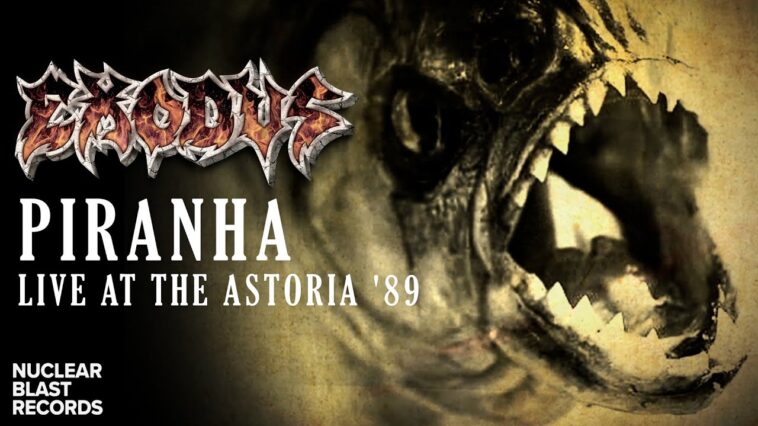There is no shortage of tell-all autobiographies from pioneers of thrash metal. While none of the current members of Metallica or the founding members of Slayer have released memoirs yet, the glory days of the San Francisco-area movement and other major thrash scenes have been well documented in books by members of Megadeth (Dave Mustaine, David Ellefson, Marty Friedman, Nick Menza), two guys from Anthrax (Scott Ian, Frank Bello) and Testament guitarist Alex Skolnick.
So, why did it take thrash veteran Gary Holt so long to throw his tales in the ring when he was there from the very start? After all, Holt was hanging out with Kirk Hammett in Exodus long before the latter left to join Metallica – and he is the only SF guitarist to play on every Exodus album and perform live in Slayer from 2011 to 2019 and again at their recent reunion shows.
In other words, Holt is arguably more qualified than anyone from the Bay Area to chronicle the rise and fall of thrash metal. Initially, he had some reservations, but he eventually came around.
“I’ve been asked over the years when I was going to do a book, and at first I didn’t want to because I know where all the bodies are buried and I didn’t want to put anyone out to dry or get them in trouble,” he said before the recent release of A Fabulous Disaster: From the Garage to Madison Square Garden. The Hard Way. Holt, chuckles, then continues in an understated voice.
“But then I realized I could focus on my own stories and spill the dirt on myself without involving anyone else. That made the idea a lot more appealing.”
Holt’s initial plan was to flex his storytelling chops and write the book on his own; however, he couldn’t find time to sit down and dedicate himself fully to the project and decided he needed to find a compatible co-author. That happened when Holt was being interviewed for a cover story for Decibel magazine by Adam Tepedelen. After their conversation, Tepedelen asked Holt if he might be interested in working together on a book.
“It was the right time and right place,” Holt says. “I said, ‘Okay, let’s try it and see how it goes. If we click, we’ll make it happen.’ We started talking and it worked out really well from the start, so we kept going and I’m really happy with the end result.”
Named after Exodus’ third album, 1989’s Fabulous Disaster, the book begins with Holt looking back at his earliest days as a thrash guitarist, working with friends to create music that resonated with the sounds of various scenes, including the New Wave of British Heavy Metal (especially early Iron Maiden and Venom) and Eighties hardcore punk (Discharge, Cro-Mags).

After being Hammett’s friend and guitar tech, Holt joined Exodus when guitarist Tim Agnello left the band. Exodus played backyard parties and dreamed of making a quality demo they could exchange with other tape traders. “We just wanted to be heavy as fuck,” he writes. “And I’m pretty sure no major record label saw that as a marketable attribute.”
In addition to giving him a creative outlet, Exodus provided Holt with a community that provided a temporary escape from poverty and ostracism through the misanthropic lens of violent music, excessive drinking, drugs and juvenile delinquency.
In unflinching detail, Holt reveals how Exodus was a platform to overindulge in each of the above with some of the craziest motherfuckers in the scene, some of whom, including Exodus’ original unhinged vocalist Paul Baloff, are no longer with us.
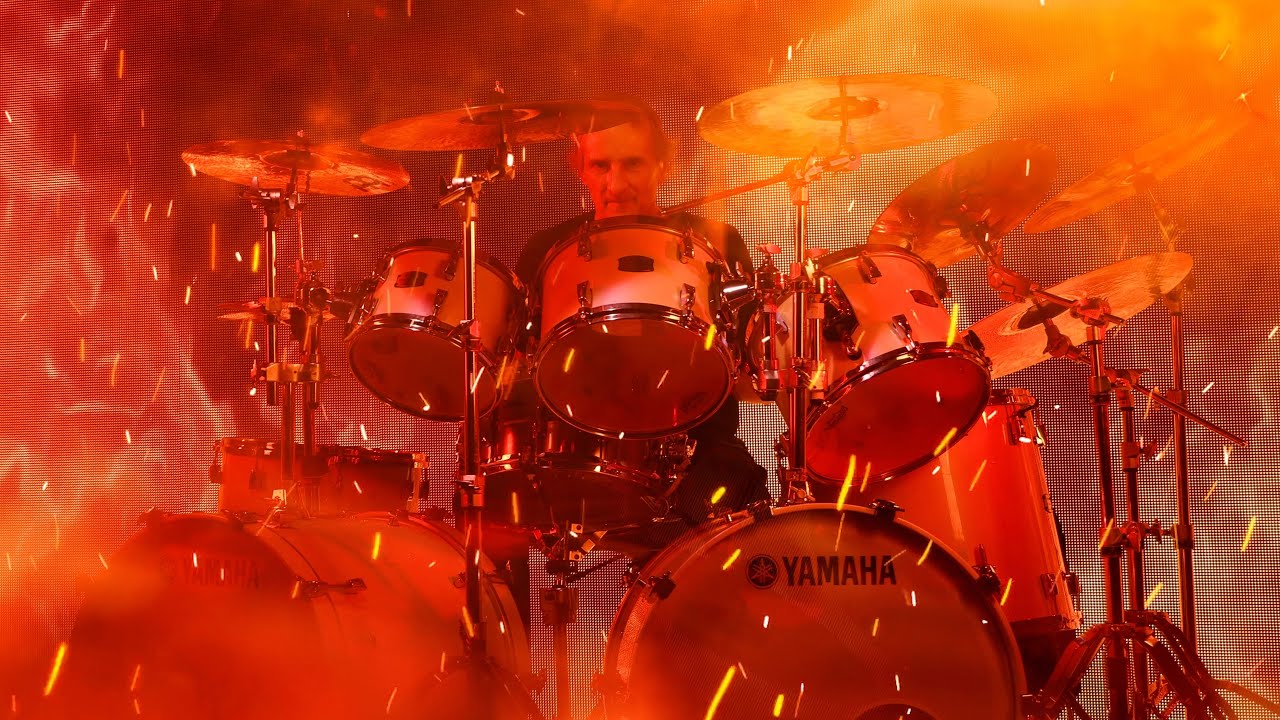
Lucky for thrash fans, Exodus worked just as hard on their music as they did at trashing houses, torturing so-called posers and drinking everything within their reach. As Exodus released their heralded 1985 debut, Bonded by Blood, developed a strong following and became successful, Holt and his bandmates wrangled with inter-band turmoil, addiction and the collapse of metal in the Nineties.
After breaking up the band and returning to a blue-collar job to make ends meet, Holt experienced a redemptive second wave of success with a reformed Exodus and an invitation to join Slayer.
The euphoric highs and debilitating lows are vividly captured in A Fabulous Disaster, which is flavored with enticing drama, self-deprecating humor and honest, sometimes agonizing reflection.
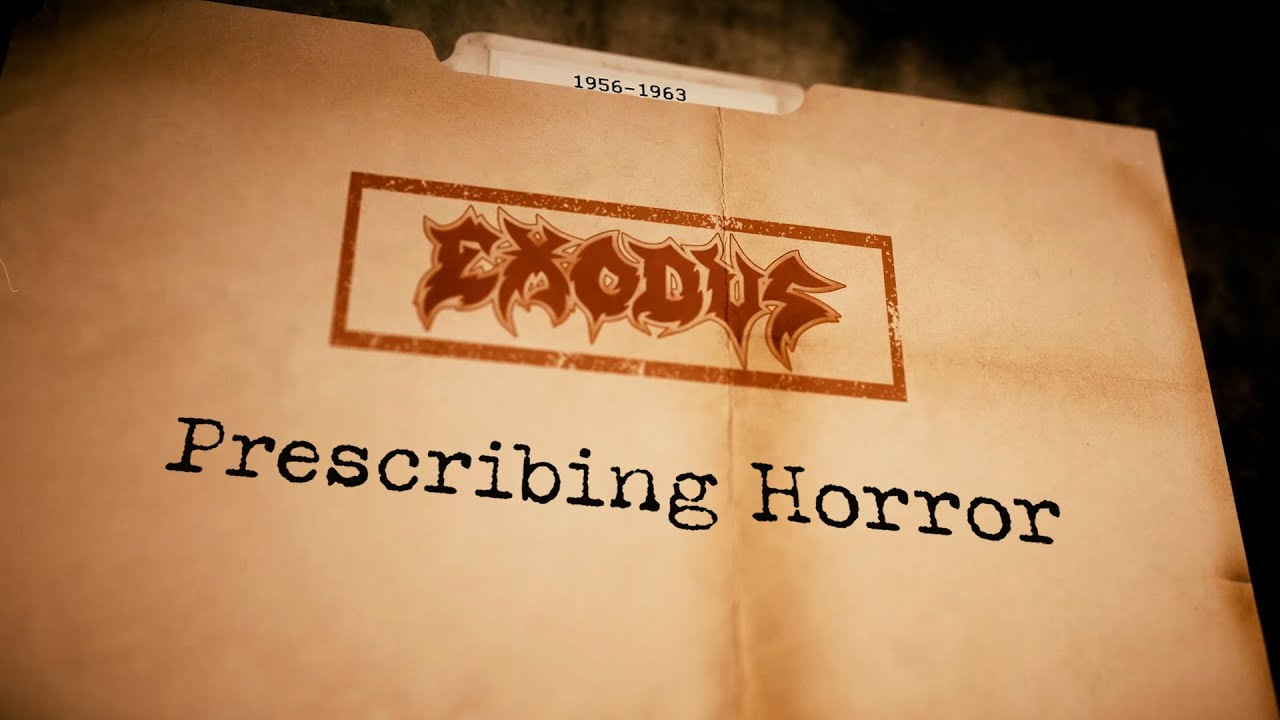
“Half of the battle to doing the book right was feeling comfortable about opening all of these wounds,” Holt says. “You really have to feel like the person you’re working with is someone you can share this stuff with.
“We got so many good stories in there and there’s tons leftover that wouldn’t fit in the book, which are just crazy, hilarious, cringe-inducing, horrifically bad stuff and amazingly good stuff and everything in between. Hopefully, I’ll revisit some of that stuff down the road.”
In a candid conversation, Holt reveals what compelled him to roll up his sleeves and unflinchingly tell his life story, what he gained from the revising Exodus’ gritty past, and his plans for the follow-up to Exodus’ 2021 album, Persona Non Grata. He also talks about Slayer’s reunion shows, why he didn’t want to play on Kerry King’s 2024 solo album, the rigors of arthritis and how he’d be okay if he had to give up music and return to roofing for a living.”
![“Tracking guitars for Pleasures of the Flesh at Alpha & Omega studios in San Francisco with Rick Hunolt [right], circa 1986,” Holt says](https://backingtracksfullcollection.com/wp-content/uploads/2025/06/1750162213_338_Most-of-these-dudes-dont-fall-quite-as-far-as.jpg)
Many autobiographies are filled with anecdotes about booze, drugs and debauchery. What makes yours different?
“These things usually follow a formula: A guy gets famous, makes lots of bad decisions, develops drug habits and eventually achieves redemption. But most of these dudes don’t fall quite as far as I did. They don’t develop a meth habit and end up shoveling dog shit for $6 an hour in between releasing an album like Bonded by Blood and playing Madison Square Garden. I’ve been through a lot, and it’s all in there.”
You illustrate that juxtaposition in the chapter “Riffing in ’83. Roofing in ’93.”
“When I quit Exodus in 1993, I needed some time to figure out what I wanted to do in music, but I also needed a job. So I got a job as a roofer, and I was out in the 100-degree weather hauling 50-lb rolls of tar paper up a 40-foot ladder. I know the meaning of work and I’ve never been ashamed to get my hands dirty.”
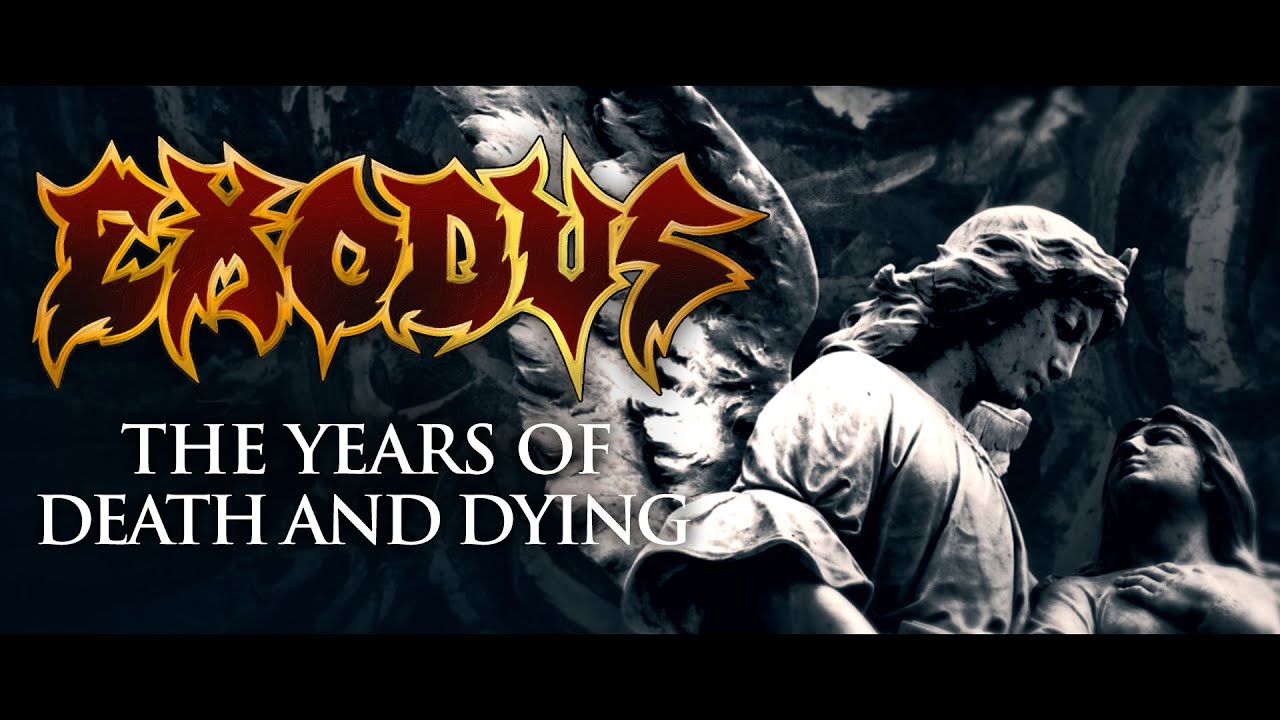
Was there anything in the book that you were reluctant to reveal?
“No, because I was really particular with what I wrote about. I didn’t feel it was my place to tell really dark stories about other people – other than what was already public knowledge. There’s a lot of great stories I could have told, but then I’d have been dragging down other people without their approval.
“When it comes to my own problems and my own drug use, I’ve always been an open book, but there are parts where I wanted people to cringe when they read it. So that’s why there’s all that stuff in there about sitting in a warehouse smoking meth with crackheads and prostitutes because that’s who I used to be. That’s not who I am now.”
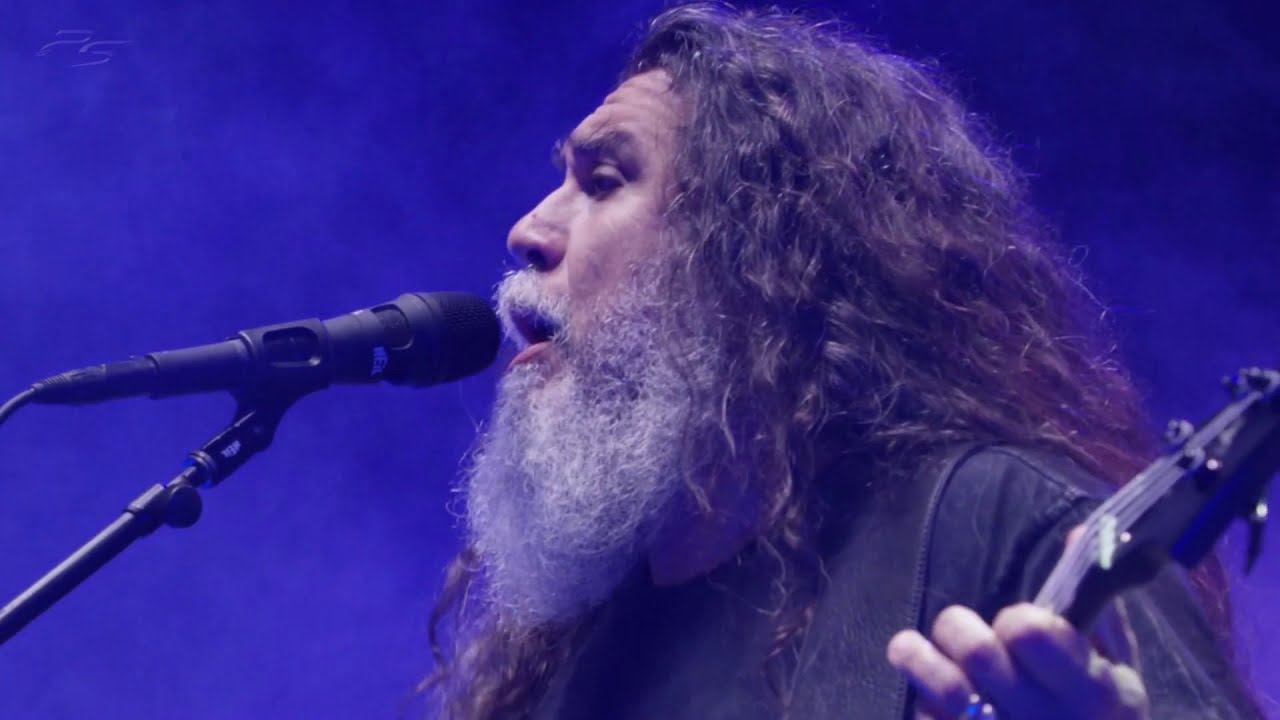
Did you learn anything about yourself while writing this book?
“I don’t know if I learned anything I didn’t already know. But I do have a ton of regret, and I carry a ton of guilt. I’ve seen people I know doing the VH1 Behind the Music thing, and sometimes when they talk about their wild days, they smile and say, ‘Yeah, it was fun.’
“I’m different. When I look back at some of my indiscretions and the selfish things I did that hurt people, I’m not proud. I was a delinquent and a lot of the things I did were not cool. But that’s what pushes me now to be an even better father, grandfather, husband and bandmate.”
![“Exodus with Slayer’sTom Araya [third from right] backstage at Wolfgang’s in 1984,” Holt says](https://backingtracksfullcollection.com/wp-content/uploads/2025/06/1750162213_126_Most-of-these-dudes-dont-fall-quite-as-far-as.jpg)
“I’m constantly striving to improve, which is something we all should do. Who wants to just be happy when there is room in your life to be better? I try to be kind to people even though I write songs about hate. Doing that is my therapy. My wife always gets on me about how many times a year I give money to random strangers on GoFundMe.
“I do it because I can, and if it’s legit, why not help people? [Our drummer] Tom [Hunting] needed money to fight cancer, and a lot of people helped him through the GoFundMe I started for him. I’m just trying to give back when I can. Karma.”
Do you believe wisdom comes with age, or do you think that the more experience you have about the world, the less you understand its complexities?
“There’s truth to both. When you’re young, you think you know everything, and when you get a bit older you realize you don’t. But if you’ve paid attention to your own failings, you’ll learn from them and hopefully improve. I guess that’s the simplest way to look at it. Just learn from your mistakes.”
Do you want readers to view A Fabulous Disaster as a cautionary tale?
“If anyone sees it like that or if it helps anyone who’s having trouble clean up their life, then that’s great. But I’m a guitar player. I’m not curing cancer. I write riffs and I’m really good at it. And I love what I’m doing, so it’s not work. I’m 100 percent constantly aware of how lucky I am that I have a career, and when I think back and realize that I threw it all away for a long-ass time, I just feel stupid.
“First, I threw it all away because I was unhappy, then later I threw it away because I was on drugs. And now, I’ve bounced back from that and I’m back with my band making music. No, I’m not selling out arenas. I’m not selling out theaters. But when you factor in that I’m able to tour, which I love, and when you couple it with merchandise sales – because we’re all traveling clothes salesmen – I’m doing just fine. And I love doing this.”
![“Tom Hunting [right] and I having a backyard- party-days reunion with Kirk Hammett [center] in Paris,” Holt says](https://backingtracksfullcollection.com/wp-content/uploads/2025/06/1750162213_916_Most-of-these-dudes-dont-fall-quite-as-far-as.jpg)
Last year, Slayer announced a handful of reunion shows. Before they were scheduled, there was bad blood between guitarist Kerry King and vocalist and bassist Tom Araya, and Kerry pulled no punches about Tom when he did press for his solo album From Hell I Rise. Was there any tension between those guys during the Slayer reunion shows?
“There was no weirdness at all. Those shows were amazing. It was a great return. I hadn’t seen anybody since I left after the last show we did. Especially on the anniversary of the show. We usually send each other texts: ‘I really appreciate you. Miss you.’ Blah, blah. But I hadn’t seen anyone. And [drummer] Paul Bostaph lives about 40 minutes north from me up in the woods. So this was a great chance to see them all again.”
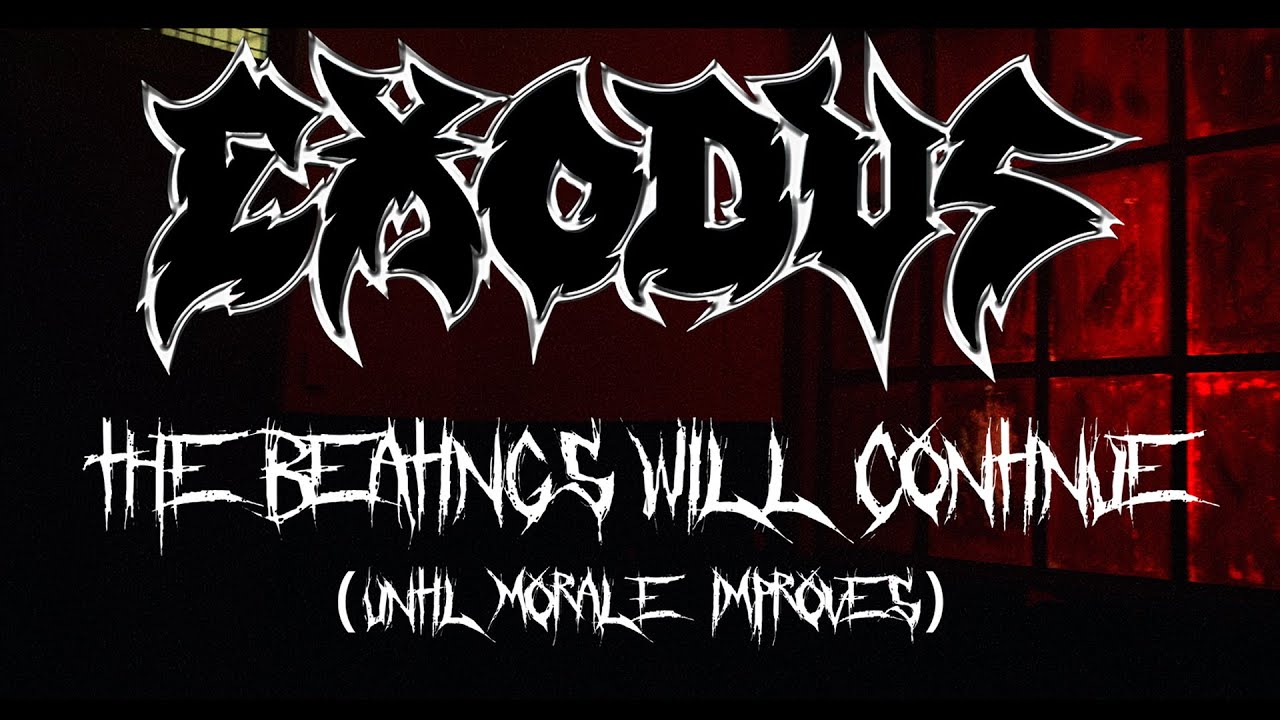
Will there be any more Slayer shows?
“There won’t be any more full tours. There won’t be any albums. If we come back and do a couple shows here and there – as Kerry has alluded to – I think that’s perfect. I love Slayer, but I’m not ready to put Exodus on hold anymore. That’s my band for life. Slayer are my family, but Exodus were my first family.
I love Slayer, but I’m not ready to put Exodus on hold anymore. That’s my band for life
“They sat on the sidelines and used a stunt double for me for a long time – just shy of 10 years. And if we do a couple more shows as Slayer, that means I get to play those songs that I’ve grown to love. But I’ve got to record and tour with Exodus full-time again. That’s my priority.”
Did you hear the Kerry King album before it came out?
“No. I knew who was in the band, which was just confirmation that it was going to be killer. And then when I heard it, I loved it. It definitely has a Slayer vibe because Kerry is one-fourth of Slayer, so of course it’s going to have that feel.
“I’m always going to sound like I do in Exodus unless I was absolutely trying my hardest not to sound like Exodus – like if I was going to issue a funk album – and even that would probably have a little Exodus in it.”
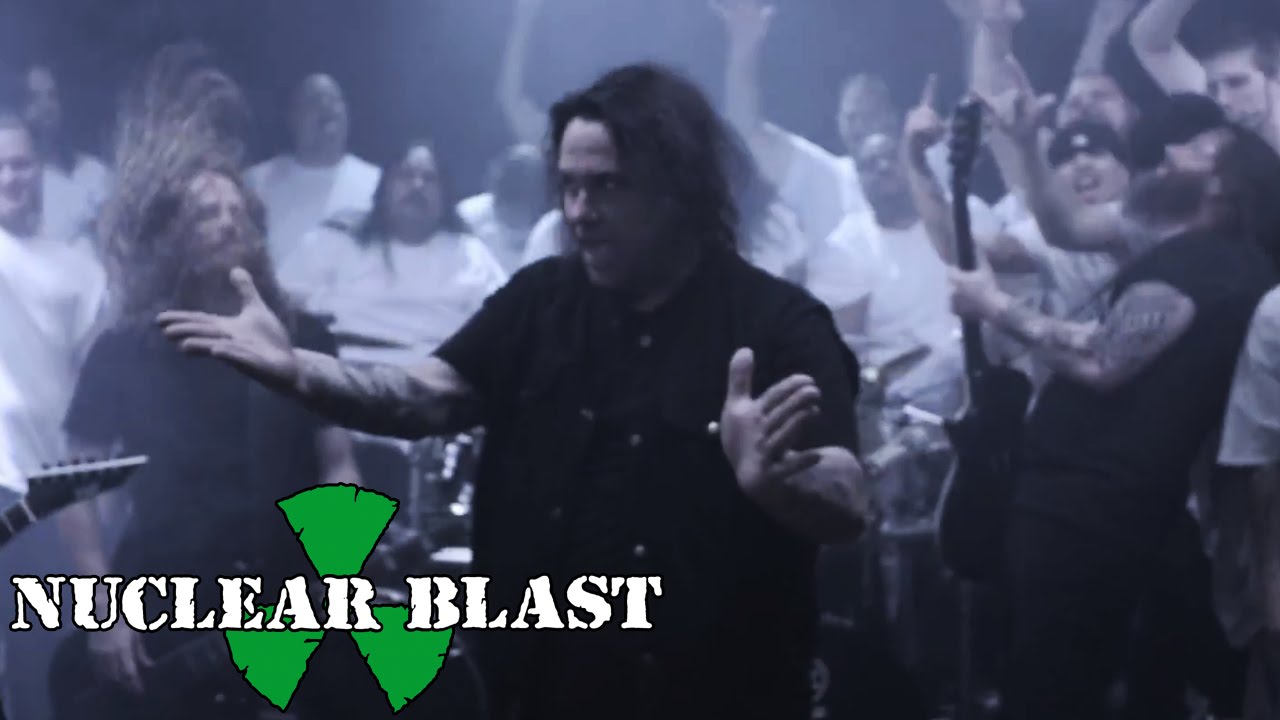
Would you want to do a funk album?
“That would be awesome. I don’t know if it’ll ever happen, but I love listening to that stuff. I don’t listen to metal at home. I like listening to the classic stuff I grew up on.
You could drop me on a desert island with the UFO catalog, or just Rainbow’s Rainbow Rising and I’d be happy
“You could drop me on a desert island with the UFO catalog, or just Rainbow’s Rainbow Rising and I’d be happy. Nowadays, my car radio is either on the local sports talk channel or it’s on the soft stuff station and I’m listening to Backstreet Boys and Adele. I love pop music – always have, though.”
Did you wish Kerry asked you to play with him on his solo album?
“No, I don’t play on nobody’s solo record. That’s not a knock on anybody who does, but I’m self-aware of who I am, and if I’m going to play on someone’s solo record your name better be Rob Halford. I mean, if James Hetfield did a solo record… I don’t know if I’d want to play for Hetfield. I’d be tempted, though.”
Nobody down-picks like Hetfield.
“Yeah, and with the tendon problems I’ve had over the years, down-picking is the first thing that’s slowed down.”
How bad are your tendon problems?
“Man, I’ve had arthritis and chronic tennis elbow. I had to fight back from them and they’ve affected me in both arms. On the last Exodus album, I had so many cortisone shots I lost count.
“I had one a couple months before recording the album and that worked wonders until we tracked The Beatings Will Continue (Until Morale Improves). I was down picking on that and I blew my right elbow out. I had to go to physical therapy to get back to playing.
“So, if I worked with James he might give me shit about keeping up on some of the down-picking stuff, but the things I do well, I do as well as anybody else. With down-picking, you learn little cheats to get through it.”
Can you make alternate picking sound like down-picking?
“I do both. I’ll go down-up-down-down-down-down-down/down-up-down-down-down-down-down… That gives me a split-second break. But everybody cheats. I’ve seen videos of James leaving out down-picks. You know?
“We’re living with 60-year-old arms now. On these reunion shows, Slayer was playing Reborn. And Kerry and I were like, ‘Man, that’s fast!’ Goddamn, that was fun to play for those two shows, but I was super-relieved when we got through it.”
How far along are you on the follow up to Exodus’ 2021 album, Persona Non Grata?
“I’ve got about 20 new songs that we’re working on. Tom Hunting and I worked out some of the stuff in advance together because as long as we go into the studio with five or six completed songs, then we’ve got a good starting point. We tend to write a lot in the studio, anyway. We like to do what I call our album summer camp, where we all live in one house together and immerse ourselves in the music.
“We did that on our last album during the pandemic and it gave us the greatest opportunity we’ve ever had. We shipped a truckload of recording material to Tom’s house in the mountains in Lake Almonor, California, along with Steve Lagudi, our engineer. And we stayed there and worked on the album. Of course, there wasn’t anywhere to go then, but I’m hoping we can have that same game plan this time around.”
How would you describe the new Exodus material?
“It’s hard to say, because every album is its own thing. Some of the record is super, super fast, and other parts are big, slow, and ominous with lots of space to breathe and build. And there are a couple moments that are, dare I say, doomy. There’s a lot of melody in there, but it’s also really heavy.
“Exodus fans are gonna dig it. [Guitarist] Lee Altus has a bunch of stuff he’s still working on, so that will add more elements to the songs. The only challenge is hitting our recording goal, otherwise it’s going to be out in 2026, and we have a bunch of tours lined up, but we’ll figure it out.”
You look like a rock star onstage and you’ve lived like a rock star, but you seem humbler than some of your peers.
People don’t realize that when I’m home from tour and you buy a shirt or even a guitar pick from me, I’m the guy who puts it in the package
“Look, I’m not out there selling out arenas. Exodus just got off our first headlining tour in the U.S. in a long time, and it was a blast. Maybe the shows weren’t as well-attended as some we’ve done in the past, but they were really good because a lot of bands on the road right now are getting hammered.
“I just have to be smarter these days, so I’m involved in all sides of the business. People don’t realize that when I’m home from tour and you buy a shirt or even a guitar pick from me, I’m the guy who puts it in the package. I don’t hire someone else to do it. And I’m lucky to do it.
“I live a good life. I have great grandkids, great kids, a great wife, and a great band. I was lucky to have two great bands for a long time. If the bottom fell out in music for me tomorrow, I’d go get a job again. I have no hangups about that. I appreciate what I have and the position I’m in. That’s something that I’ll never take for granted.”
